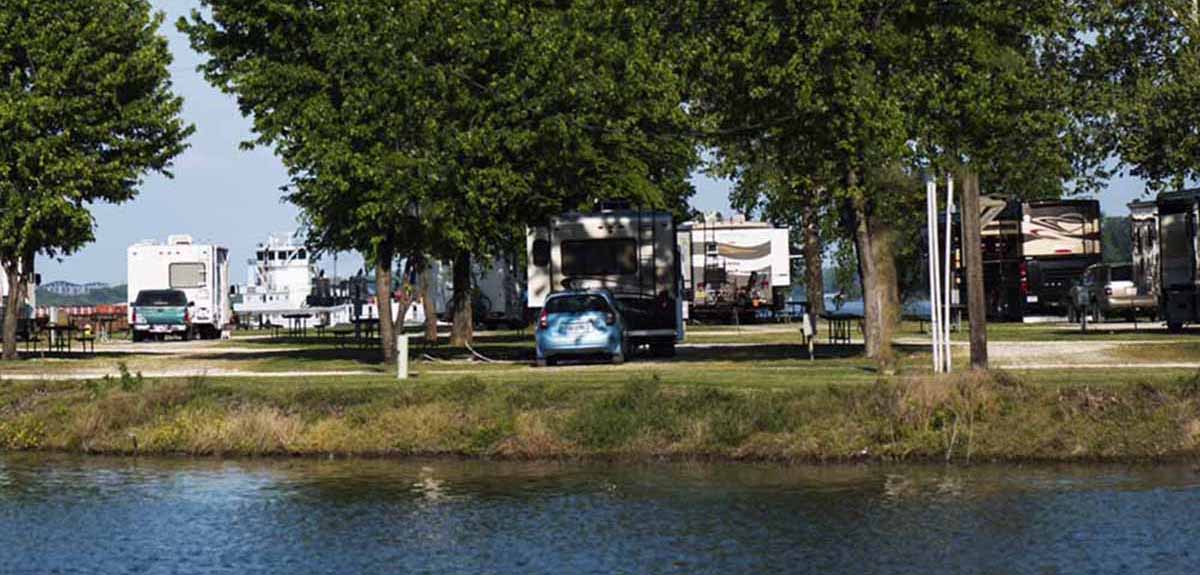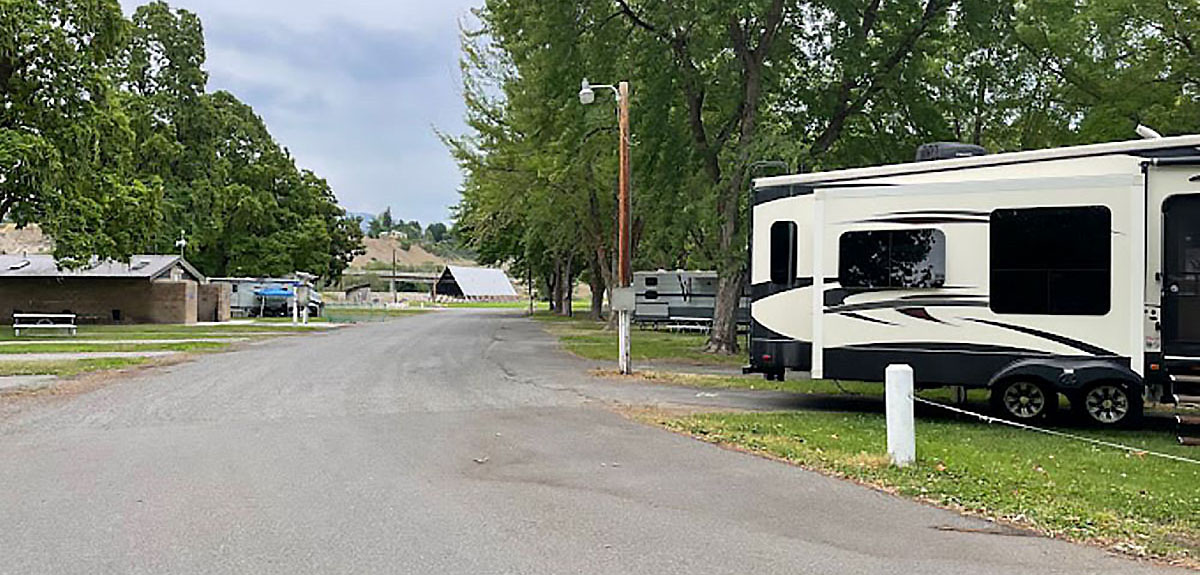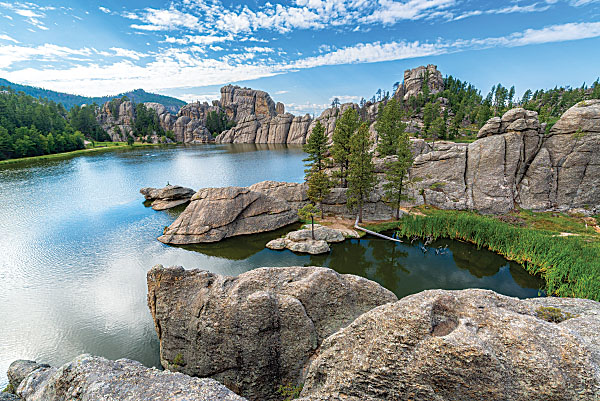Getting Medical Services While Camping and Traveling
If you're traveling and camping a lot, you'll need care on the road.
Image Caption:
None of us like to think about the worst-case scenarios when we are preparing for an RV trip. While planning and preparation go a long way, getting medical services on the road sometimes becomes a necessity.
Unfortunately, this issue is not as cut-and-dry as it should be. There are several reasons why that might be the case, but our focus today will be on how you can get medical help when you are traveling in an RV, travel trailer, fifth wheel, or any other type of camper.
A Quick Note Before We Begin. I am not a licensed insurance or medical professional. If you have specific questions pertaining to your travel style, medical background, and other factors, I encourage you to reach out to an expert.
Prepare To Be Self-Reliant
The first, and arguably most important, point that I’d like to make is that there is no substitute for preventative health care. All of our bodies and genetic makeups are different, which is why it is so important to be an advocate for your own health.
In the simplest terms, this means being well stocked on all of your medications so that you don’t have to drive miles out of the way to find a pharmacy that can fill a prescription. From a more holistic perspective, it means evaluating how your daily routine does (or does not) contribute to your overall health.
There can be many nuances to this point and this isn’t the time or place to dive deeper into them. The point here is to take the initiative to boost your body’s immune system before you get sick. In other words, it pays to be proactive instead of reactive when you are living on the road!
On that note, many RVers also schedule a trip back to their home region once or twice a year. This allows you to schedule regular appointments with healthcare professionals in your network and that you have built a relationship with over the years.

Work out outdoors when the weather warms up. Image: Shutterstock
Know Your Current Health Insurance Plan Inside and Out
Many of us still receive our insurance benefits through an employer. Even if you have become one of the many folks that have been pleasantly surprised by the joys of remote work over the past year, your employer probably still provides some level of health coverage.
If you fall into this category and you are planning to do some RV travel to enjoy that newfound remote work freedom, consult with your employer about your health insurance coverage. Ask questions about the coverage network in the places you are planning to visit and how your plan handles emergency services in different regions.
Where To Research RV Insurance Plans
If you are leaving behind the comfort of your corporate job and diving into a nomadic lifestyle, you will need to find your own health insurance plan. Fortunately, the RVer Insurance Exchange is an excellent resource for researching health insurance plans that are specifically designed for full-time RVers.
The exchange was developed in partnership with the Escapees RV Club. If you want, you can connect with an insurance agent that will help you find a plan that meets your needs and covers you for the specific type of RV travel you are interested in.
That takes some of the burden of research off your shoulders and they will also allow you to compare both marketplace and non-marketplace insurance plans. They can also supply a free quote so you can get an idea of your monthly premiums before you enroll.
Additionally, while Good Sam offers various insurance products and services for medical care, and it even offers some emergency medical services in the form of its TravelAssist plans.
What To Look For In An RV Insurance Plan
Finding an insurance plan that suits your needs is a different ballgame for RVers. Here are some of the most important criteria to look for when you are doing your research:
- Network Coverage: You need as close to nationwide coverage as possible (unless you only use your RV for regional “staycations”). As such, the best plans out there will be PPO plans.
- Some HMO and EPO plans may offer similar benefits, but few offer truly nationwide coverage.
- Cost-Benefit Analysis: You will need to strike a balance between your deductible and your monthly premium. With most plans, a higher deductible means a lower monthly premium (and vice versa).
- Your balance depends on your budget and health history. Some folks prefer a plan with a lower monthly premium because it gives them the ability to “self-insure” by setting aside money in a monthly savings account that is only used in case of an emergency.
- Fine Print: I’ve read a few stories of RVers choosing a plan that they think makes sense for them only to find that there is some sort of stipulation that requires them to reside in their home state for a certain amount of time each year in order to receive coverage.
- Make sure the plan you choose is right for the type of RV travel you do.
How to Get Quick Care In Non-Emergency Situations
Many RVers swear by urgent care facilities and walk-in medical clinics. These facilities generally allow you to be seen by a doctor or physician more quickly than if you had to wait to book an appointment with another provider.
Urgent care facilities are really best for handling significant (but non-life-threatening) injuries. This includes things like broken bones, sprained ankles, minor respiratory issues, lacerations requiring stitches, and more.
Walk-in medical clinics tend to be better for regular check-ups, immunizations, minor cuts and scrapes, allergic reactions, viruses, infections, and the like. They are usually staffed by nurse practitioners and physician assistants and also generally come with lower costs than an urgent care facility.
The Growing Field of Telemedicine
Telemedicine has been growing in popularity even before recent events gave it additional momentum. It is a great way for travelers and RVers to stay connected with a trusted healthcare professional in their network.
While it has its limitations, it can be great for some things that don’t really require an in-person visit. This includes things like refill prescriptions, double-checking lab results, and quick consultations on whether that nagging injury really requires professional attention.
Keep in mind that telemedicine is not a substitute or alternative to in-person doctor visits or a solid RV health insurance plan. This should be viewed more like a health supplement when you don’t really need to go into the doctor’s office.

Image by the National Cancer Institute from Unsplash
Tips for RVing Internationally or Overlanding
If you take the plunge into international overland RVing, it will be increasingly difficult to find qualified medical help. Fortunately, we have two solutions we’d like to share.
Enroll in a Traveler’s Insurance Coverage Plan
First, consider investing in some type of traveler’s insurance. Providers of traveler’s insurance specialize in helping you find local hospitals or medical providers in case of an emergency. Depending on the plan you choose, many will also cover the costs of treatments and emergency transportation.
Once you find a plan that suits the type of travel you will be doing, make sure you keep the number for assistance services in an easy-to-find place in your RV. This will be the number you contact directly to help you find qualified medical services when you need them.
Consider Becoming an IAMAT Member
IAMAT stands for the International Association for Medical Assistance to Travelers. This network furnishes members with online access to doctors and affiliated clinics in more than 90 countries and they also give you access to pre-travel information that can help you plan for emergencies based on your specific travel plans.
While this solution may be best for international travelers and overland RVers, it can be a great way to stay up-to-date with local health risks even if you are traveling domestically.
Explore Wilderness Medical Training
This may not be necessary for all RVers, but it becomes increasingly important as you seek more remote camping destinations. While there is only so much you can treat in the field without professional facilities and specialized equipment, having some level of wilderness medical training can help in many situations.
Taking a course to become Wilderness First Aid or Wilderness First Responder certified will prepare you to handle a lot of minor injuries in the field. Over time, this can save you some money by self-treating instead of having to visit an urgent care facility or walk-in clinic.
It can also significantly improve your confidence and willingness to undertake more daring RV adventures. Plus, you might be surprised by how much the skills you pick up come in handy in everyday life!
Conclusion
We hope that these tips have helped you feel more comfortable with taking life on the road. Whether you are dipping your toes into the world of full-time RVing or just experimenting with weekend getaways, knowing where to get medical services on the road is essential.
I’d like to wish you all the safest and most enjoyable of adventures during the coming season!





